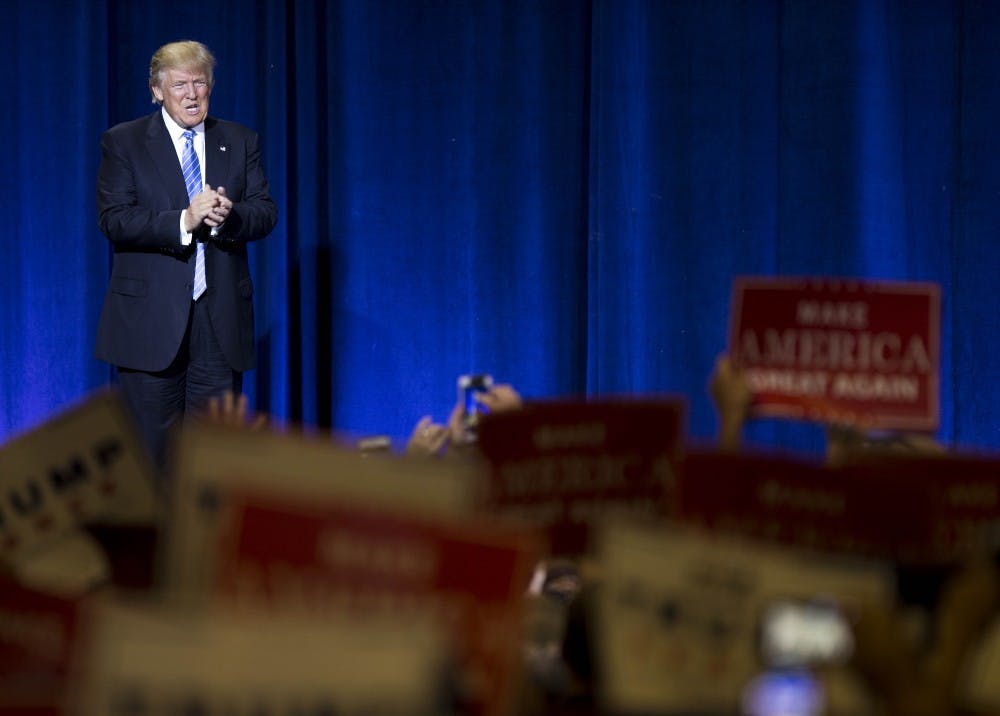As President-elect Donald Trump comes closer to officially taking his seat in the White House, some students have said their anxiety and anticipation regarding the new administration has increased — specifically those involved in sustainability.
Members of various sustainability clubs on campus have expressed apprehension about the president-elect's disregard for climate change issues such as carbon emissions, clean energy and oil.
Jason Zeikowitz is an officer in both GreenLight Solutions, a community based sustainability group; and the Citizens Climate Lobby at ASU, the ASU chapter of a national environmental lobbying firm. He said he has three main concerns about environmental policy regarding our next president.
His top three concerns include:
- The Environmental Protection Agency transition
- The U.S's potential withdraw from the U.N. on global pacts to prevent climate change
- Trump refusing to consider opposing viewpoints
"If he can listen to his constituents who believe in climate change, they can voice their concerns," Zeikowitz said. "I'm concerned that it is going to be hard to meet with him on democracy and the values of the people ... I feel he has a team of yes-men."
Trump recently chose Myron Ebel, who is a skeptic of climate change, to handle the EPA transition. He also tapped Sen. Jeff Sessions for attorney general, which is a position that directly oversees EPA laws. Sessions shares similar sentiments to Ebel regarding climate change.
Zeikowitz is not alone in his apprehensions, April Jeffries is a materials engineering graduate student and a member of CCL at ASU who also feels the next four years may be a trying time for climate change activists.
"Why would all of the other countries work so hard when the second largest emitter of carbon dioxide isn't going to do anything?" Jeffries said. "We have somebody who is the president and thinks climate change is a hoax. … That just seems a little devastating."
She said she is nervous that Trump will prompt a U.S. pullout from the Paris Climate Agreement.
Currently, the U.S is the second largest carbon polluter, trailing just behind China.
Bonnie Fraser, who is the chapter adviser of CCL, said she agrees with Jeffries.
One of CCL's main objectives is passing a bill that will implement a carbon tax. A carbon tax would allow the government to tax fossil fuel users in order to help pay for environmental damages that the carbon may have caused.
She said that despite a potentially non-environmentally friendly administration, she expects a carbon tax bill to pass in the next four years.
"He will probably revoke the clean power plants plan," Fraser said. "We have gotten a lot more calls to CCL to join. A lot have realized it is very important at this time. It's a steep climb, but we're doubling down our dedication."
Reach the reporter at Garrison.Murphy@asu.edu or follow @Garrison_Murphy on Twitter.
Like The State Press on Facebook and follow @statepress on Twitter.




